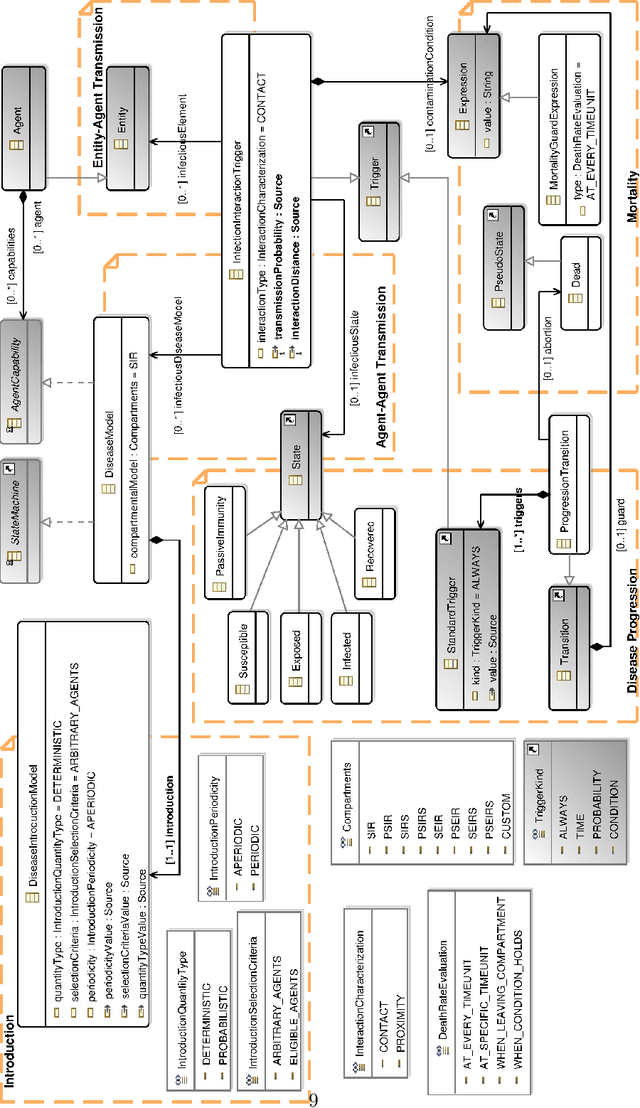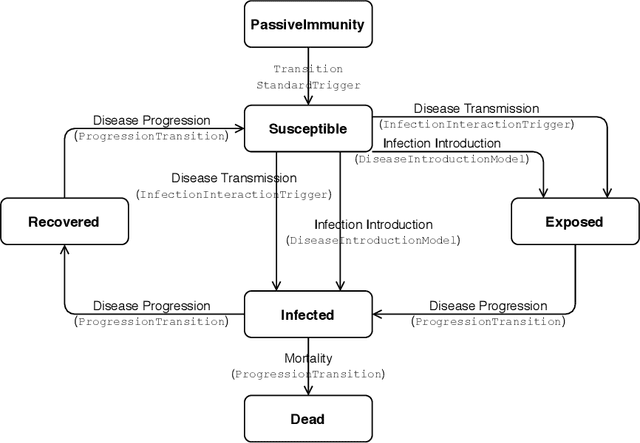Quantitatively Assessing the Benefits of Model-driven Development in Agent-based Modeling and Simulation
Paper and Code
Jun 15, 2020



The agent-based modeling and simulation (ABMS) paradigm has been used to analyze, reproduce, and predict phenomena related to many application areas. Although there are many agent-based platforms that support simulation development, they rely on programming languages that require extensive programming knowledge. Model-driven development (MDD) has been explored to facilitate simulation modeling, by means of high-level modeling languages that provide reusable building blocks that hide computational complexity, and code generation. However, there is still limited knowledge of how MDD approaches to ABMS contribute to increasing development productivity and quality. We thus in this paper present an empirical study that quantitatively compares the use of MDD and ABMS platforms mainly in terms of effort and developer mistakes. Our evaluation was performed using MDD4ABMS-an MDD approach with a core and extensions to two application areas, one of which developed for this study-and NetLogo, a widely used platform. The obtained results show that MDD4ABMS requires less effort to develop simulations with similar (sometimes better) design quality than NetLogo, giving evidence of the benefits that MDD can provide to ABMS.
 Add to Chrome
Add to Chrome Add to Firefox
Add to Firefox Add to Edge
Add to Edge